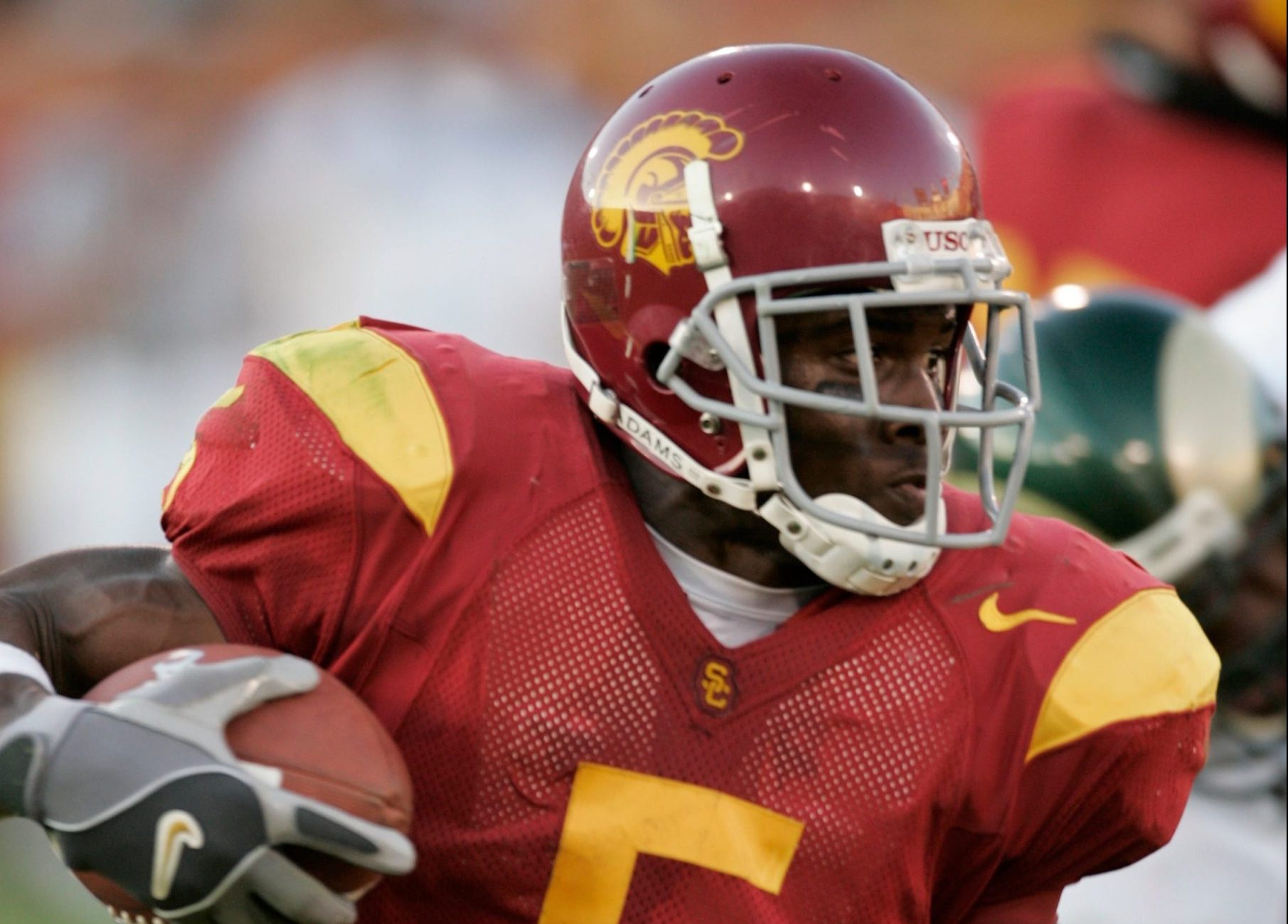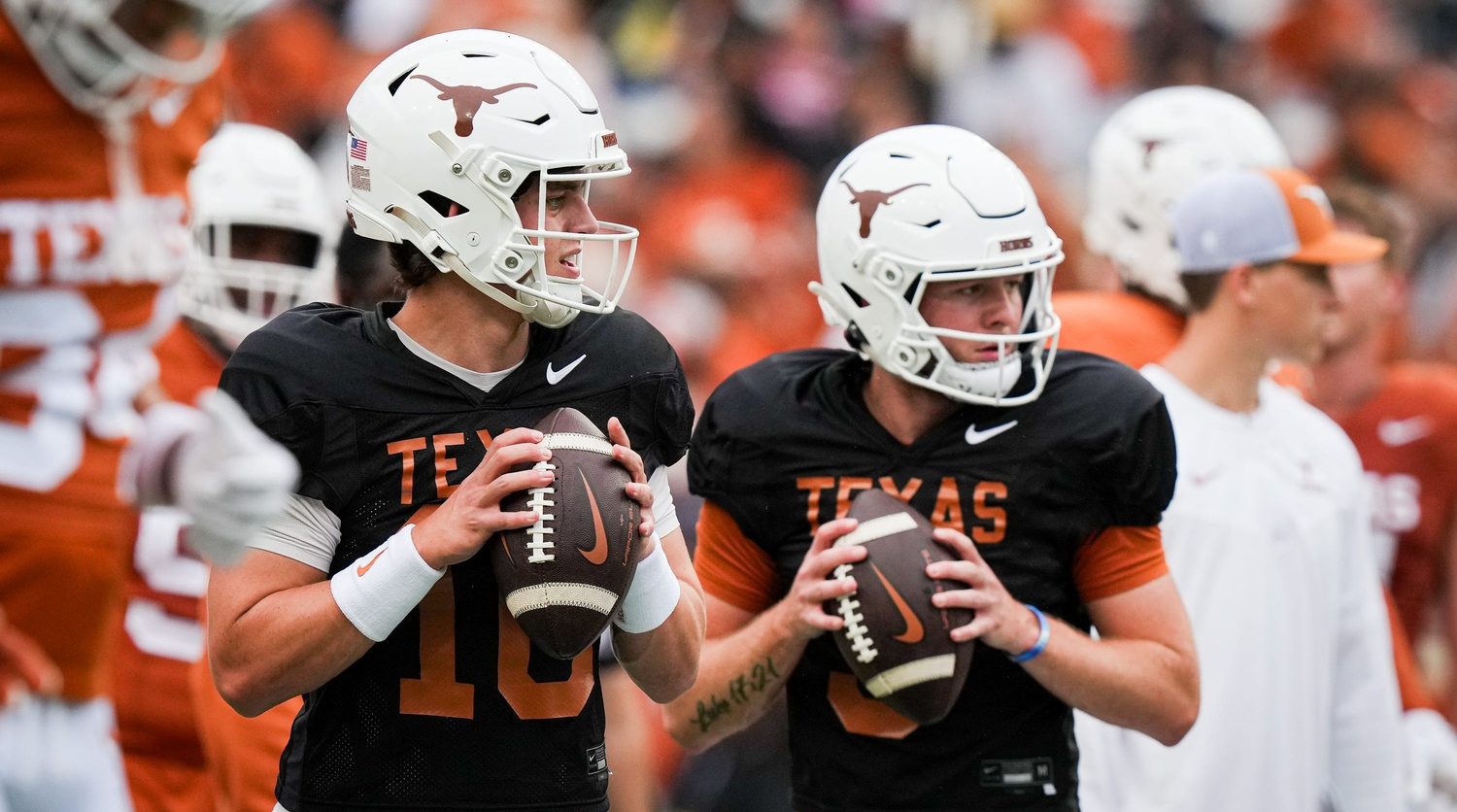This World Cup controversy was on the field for a change, but it just added to the firestorm FIFA is facing from the soccer world.
Less than 10 minutes into the match between England and Iran, Iran goalkeeper Alireza Beiranvand jumped toward a cross into the box and smacked face-first into the face of Iran center back Majid Hosseini.
ouch 🤕😬 pic.twitter.com/6GKtoFRLfc
— FOX Soccer (@FOXSoccer) November 21, 2022
The collision caused a bloody nose for Beiranvand and an almost certain concussion. But the Iranian doctors who checked on him allowed Beiranvand to stay in the game and play through the injury.
After a delay of almost 10 minutes, Beiranvand stayed in the game. He took one goal kick, then immediately laid down and was forced to come out of the game.
Former USMNT player and Fox color analyst Landon Donovan was critical of the situation and knew almost instinctually that Beiranvand wasn’t OK to continue.
“I don’t want to speculate, but he just doesn’t look right to me, to be honest,” Donovan said. “You look in his eyes, he looks quite phased by this.”
Once he went down, Donovan said, “I give him a lot of credit, this is really difficult. But it’s the right thing.”
It was the right decision for a player who understandably wanted to continue playing on the sport’s biggest stage, but the incident spotlighted FIFA’s concussion protocol, which has a glaring conflict of interest.
Per Yahoo Sports’ Henry Bushnell, FIFA relies on team doctors to self-report concussions. There is no penalty for allowing a concussed player to stay in the game, while there are no temporary substitutes at the World Cup to allow time to evaluate a player for a concussion. So when that’s the case, the player is more than likely going to take any opportunity to stay in.
Fox rules analyst Dr. Joe Machnik pointed this out on the broadcast, which fueled criticism online to those who weren’t aware of the lack of independent governance around concussion reporting. Donovan called out the issue on the broadcast.
“Everyone’s biased here,” he said. “Beiranvand is biased, their doctors are. They’re getting pressure from (the Iran coach), maybe, to keep him in the game … I think it’s a great idea to have someone independent to make that decision. It’s very dangerous.”
“I think it’s going to spark a debate, this whole incident,” play-by-play commentator Ian Darke said.
Incredible from Iran goalkeeper Alireza Beiranvand. It looked like he was coming off after a broken his nose. But he continues after a lengthy stoppage. Hard to feel that this is not a dangerous decision for him. #IRN #ENG #FIFAWorldCup
— Nizaar Kinsella (@NizaarKinsella) November 21, 2022
As if this World Cup didn’t have enough to contend with. This is a terrible look for football.
— Simon Stone (@sistoney67) November 21, 2022
Erhm. Alireza Beiranvandhas no business being on the pitch anymore. He is clearly dealing with concussion symptoms. This is once again such a terrible message from the sport.
— Luis Miguel Echegaray (@lmechegaray) November 21, 2022
Broke your nose? Concussions? This holy water shower will fix it! pic.twitter.com/lyWgi2eUx8
— M•A•J (@Ultra_Suristic) November 21, 2022
It’s 2022 and football still doesn’t take concussion seriously.
— Leanne Prescott (@_lfcleanne) November 21, 2022





